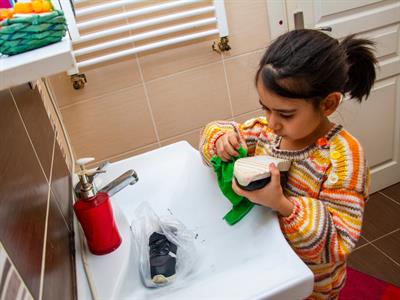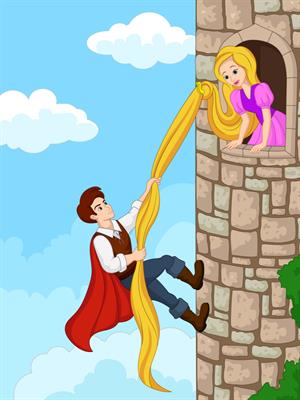
PUMPA - SMART LEARNING
எங்கள் ஆசிரியர்களுடன் 1-ஆன்-1 ஆலோசனை நேரத்தைப் பெறுங்கள். டாப்பர் ஆவதற்கு நாங்கள் பயிற்சி அளிப்போம்
Book Free DemoThe poem 'Amanda' revolves around the dilemma faced by a young girl named Amanda. As children grow up, they are given a set of rules and regulations by people who are their caretakers. Every child is born without knowing how and what they are supposed to do in the world. The social set-up and the people who guide them are the only sources of their understanding of the outer world. We often wonder about the reason behind certain rules being levied on us. For example, we do not cut our nails in the evening. We blindly follow this but never question as to why we are asked to follow a superstition. Apart from superstitions, we are also bombarded with various activities and rules that we need to follow. There are too many of them that we feel overwhelmed. The poem also talks about an overwhelmed child like that, who delves into her own imaginary world when she feels it is too much for her.
The first rule that the poet talks about is biting nails. As children, we all tend to bite our nails, either out of nervousness or out of habit. Nails are just extra skin that grows on our fingers, and it is always good to keep them clean, as it can bring on diseases. Biting them can also lead to diseases in the gums and can affect the alignment of the teeth. But rather than telling a child the reason for refraining from nail-biting, they are only given direct orders. Similarly, they are also asked to sit straight and not slouch. Children tend to hunch up their shoulders and sit in a lethargic position when they are bored. They do this unconsciously. This can lead to having a bent back as they grow up. But the poet seems to be focussing on the fact that ordering them to sit straight can only lead the children to repeat it as they are unaware of why they are asked to do so. Amanda is ordered to stop doing this and that, and not talk about the consequences.

Child biting nails
When children are repressed with orders, they feel that their freedom is being curbed. Amanda, therefore, imagines herself as being in a different world whenever she feels overwhelmed with the orders. She imagines herself in an emerald sea, where there is no one but only her. She may have come up with this fantasy as she was smothered by people around her who suffocated her with rules. She wants to be in a peaceful set-up and hence imagines a sea. It is not just any ordinary sea, but an emerald one, as fantasies have no set rules. She imagines herself as a mermaid drifting across the sea. As young children are curious about mermaids, unicorns etc., Amanda also wants to be unique.

Mermaid
If there is one thing that students hate, it is the homework or assignments given in school. Most children like to enjoy their free time and dread the time of homework. So in most cases, homework is piled up until the last minute. Although the duty to evaluate the homework is of the teacher, It is the parents who get anxious about the homework. They keep nagging about the performance and the completion. Amanda's parents also seem to fit into this category as they ask her if she has finished her homework. This could be out of sheer concern. But rather than asking about the outcome, Amanda could be asked about how she found the homework and if it was difficult. This could motivate the child to do better and understand her working level.
Parents always urge children to keep their surroundings clean. It is a habit that needs to be inculcated from a young age. The disorder can affect one's daily routine. Amanda's parents also ask her totidy up her room. Amanda seems to be in the middle of various chores. The parents who focus on order do not seem to follow a particular order in giving out chores. It is a question and not a statement. Amanda is only asked if she had followed the order and is not helped in doing it. She would find it more interesting if the parents made the tidying activity fun by doing it together. She is then reminded of how she was asked to clean her shoes. Children tend to play in the ground and make their shoes dirty. It is a natural thing. Rather than asking her to clean them or showing her how the parents take up a passive-aggressive tone and remind her that she does not follow their orders. This can only make the child scared.

Child cleaning shoes
Amanda is totally overwhelmed by the orders given that she fantasises about herself as an orphan. She thinks it is better to be without rules and orders over her head. It is so quiet that she walks on dust, and there are patterns on the ground. Her feet are hushed and bare as she tastes the freedom of the isolation. She imagines herself to be completely free from everything and not be answerable to anyone. She calls this silence agolden thing and that the freedom she enjoys in the fantasised land is sweet.
Parents are also conscious of their children's eating habits. Most parents force children to diet and eat very specific things. The major issue is that children love to eat chocolate, ice creams and junk food. But parents do not allow them to eat as it is unhealthy and might lead to diseases. Amanda's parents also refrain her from eating chocolate. A child might not understand why she is not allowed to eat her favourite food. Rather than completely ordering her not to eat, they could occasionally indulge her in all these food and explain the ill effects with love. The child finds it irritating to be curbed of all her favourites.

Child with acne
Parents can sometimes indirectly induce trauma in children. They are over cautious about how their children look, eat, walk etc. They fail to notice that they are neglecting their feelings. Amanda's parents ask her to stop eating chocolate as her face is filled with acne. Pointing out these things can give insecurity to the child. It is also, in a way, body shaming. She is also asked to look at them when they give out orders. This frustrates Amanda, as she imagines herself as Rapunzel, who lives alone in a long castle. In the story of Rapunzel, she is trapped inside a castle, but when she lets down her long hair through the window, she is rescued by a prince. But Amanda wants to stay inside the castle. She says she will never let her hair down, as the castle is better than the outside world. She does not have to care about anything, which is a rare and best feeling.

Rapunzel
Amanda is not allowed to let out her feelings. She is often belittled for sulking and being moody. Rather than criticising her for being sad, the proper approach would be to ask her what is wrong and talk to her. But Amanda's caretakers only aggravate the situation by teasing her. They also do not realise that they are being very irritative and say that people would think that Amanda is sulking because they have been nagging. Their problem seems to be more about what other people might think rather than the child being moody.